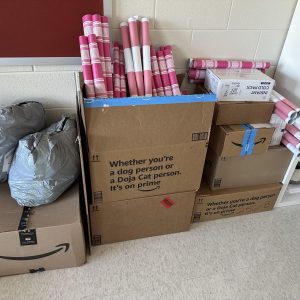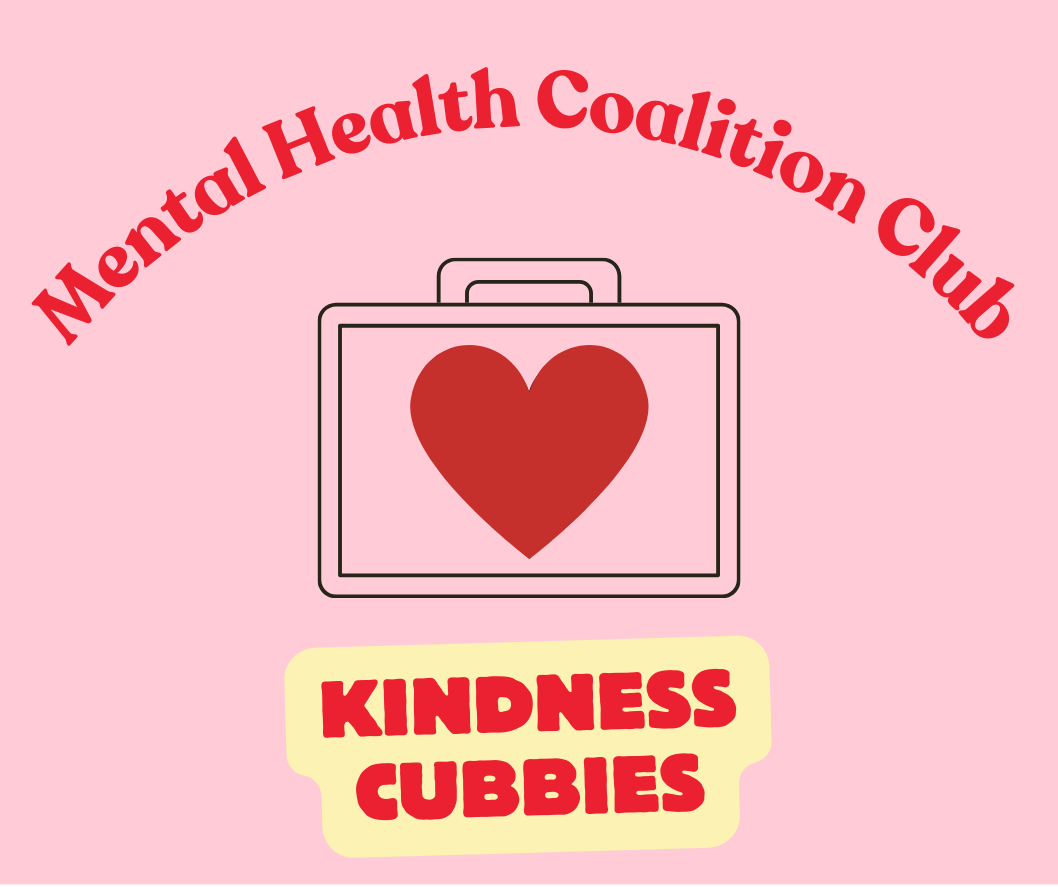It’s no secret that Jefferson students run themselves thin. From track tryouts to Advanced Placement (AP) Chemistry labs to BC Calculus homework to Spanish PALS, even the top students in the nation feel the pressures raining down on them.
With so many assignments and tests, Jefferson students are feeling this toll on their mental health. While the Mental Wellness room is accessible in Student Services, many students feel they need quick remedies more within reach.
“I have had several friends have anxiety attacks during the school day, and Student Services responded super quickly which was nice but there was no equipment we had in the building to help the students,” senior Mayuka Valluri said. Valluri is the chair of the Mental Health Coalition (MHC) club for the last three years and started the initiative of “Kindness Cubbies” to help solve this problem.
The initiative of the kindness cubbies was launched last year in a monthly MHC meeting.
“When I voiced the idea for “Kindness Kits” or “Cubbies, MHC were very supportive of it,” Valluri said. “MHC is the meeting point for students, student government, staff, parents, etc. to meet together and talk about mental health concerns in TJ and brainstorm initiatives.”

These kits will contain objects that can reduce anxiety and stress such as fidget toys, weighted blankets, hand warmers, ice packs, and more.
“For example, [if] you had to go into a really hard BC Calculus test and you were really anxious about it,” counselor Kerry Hamblin said. “You can grab a weighted blanket or a stuffed animal or an ice pack, bring it into the test with you, and then put it back.”
MHC adds that these kits help students who are experiencing high moments of anxiety until they can reach more help.
“In the future, if a student is experiencing a panic attack or something more extreme,” Valluri said. “It’ll be easier for our Student Services staff to get immediate attention to the student by providing them avenues that can first help ground them, like the kits, and then they can make their way to Franklin Commons.”
Initially, MHC intended for the kits to be available for student use in every classroom.
“We realized that that’s just not quite manageable in terms of whether it be a distraction or disruption,” Director of Student Services Sara Gentetin said. “It would be hard to know if a material item needs to be replaced. We kind of scaled it back and decided that the cubbies in select locations would be more manageable.”
With the idea of kits in each classroom crossed out, the Mental Health Coalition students and the faculty members thought of making the kits bigger but in fewer locations.
“We had a meeting to talk it through in more detail where we came up with the idea [to] maximize our impact through making larger kits,” Genetin said. “We had some fun shopping online and brainstorming ideas and found all kinds of things like weighted blankets [and] weighted stuffed animals. It’s been a year since we ordered, so I can’t remember exactly, and they’re all still sitting in the wellness room ready to be deployed into the kits.”
However, the launching of the Kindness Kits encountered a hurdle around Nov. 1, their planned date of execution.
“All the supplies are here in the mental wellness room,” Hamblin said. “But they forgot to order the container. They had to find the best bin to make sure all the supplies would fit. I believe that they’re getting ready for those to get delivered and then they can set them up right after break. They’re going to be decorated too so you can clearly find them.”
When these kindness kits do launch, sometime in the near future, MHC wants them to be a long-term tool for students.
“When we set out to do this, we purchased a little more than we knew we needed initially because of the idea of replacing things,” Director Sara Genetin said. “ Dr. [Ann] Bonitatibus agreed to replenish the kits with a different funding source. It’ll just be trial and error initially until we get a rhythm.”
However, MHC’s main goal is to focus on the well-being of Jefferson’s student body. They plan to send out surveys after the implementation of these kits in hopes of gaining insight into what the teachers and students are thinking.
“We want to make sure that we get the first couple kits out and set up correctly and let students know how to use them and what the intended purpose is, before we put them in all the different locations we plan to do,” Genetin said. “And I think we’ll see how that goes and go from there. We want to get feedback from the students. We want to get feedback from teachers because we don’t want this to become a distraction.”
In addition to being a grounding tool, counselors and student services want this to be a tool for students to help them assess the different levels of emotions they are feeling and what solution they feel they need to take.
“We want it to be an opportunity where students feel like they can take that quick break step out of the classroom, find what they need to get centered, grounded and then be able to return to class,” Genetin said. “And if that’s not enough, if they do need more help, we want them to come to student services. We also hope that students will be able to make a good decision about when it’s, ‘I need a quick break,’ or, ‘I need to go talk to somebody and I need to have another adult to help me through this.’”



